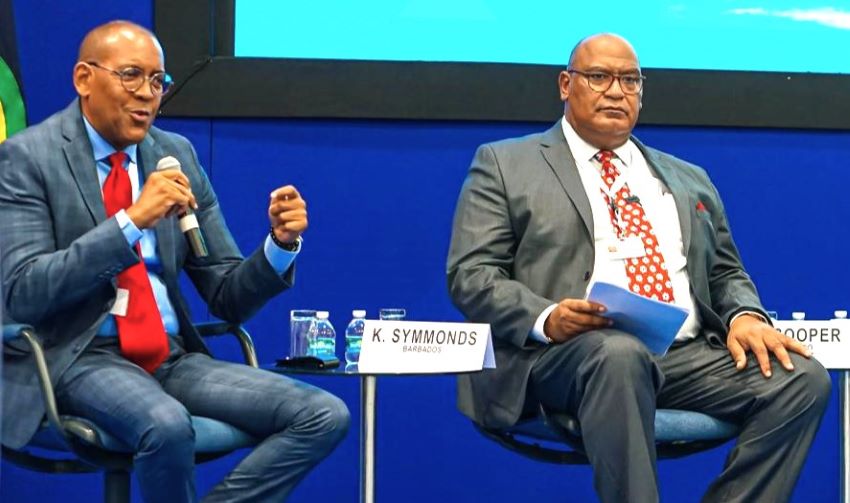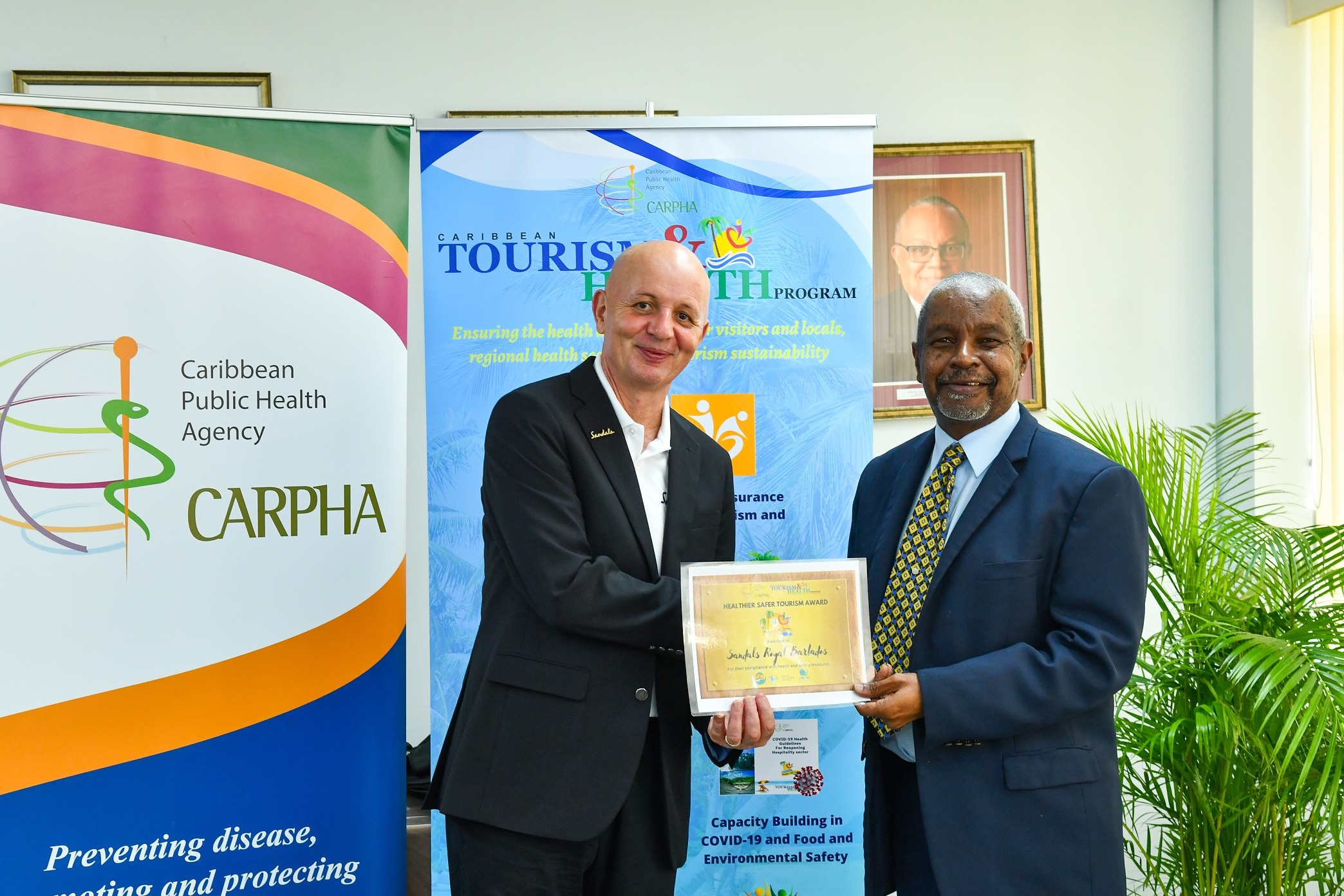Regional collaboration in the Caribbean Community (CARICOM) and the public and private sectors could be a crucial strategy for dealing with shared challenges, such as disrupted supply chains.
This was the consensus reached yesterday during the “High-level SIDS Ministerial Dialogue: Key Challenges and Opportunities” at the Global Supply Chain Forum at the Lloyd Erskine Sandiford Centre.
The session dealt with ways to address the unique transport and logistics challenges faced by small island developing states (SIDS); fostering collaboration and formulating practical, actionable solutions to boost efficiency, sustainability, and resilience; and the importance of working together as a collective to enhance the economic resilience of the Caribbean and Pacific regions.
It was moderated by Barbados’ Ambassador to the United Nations, the World Trade Organization and other international organisations in Geneva, Matthew Wilson, and participants included Minister of Foreign Affairs and Foreign Trade, Kerrie Symmonds; ministers and representatives from Curaçao, Fiji, Guyana, Martinique, Seychelles, Tuvalu, the Marshall Islands.
Minister Symmonds pointed out that the COVID-19 pandemic was an “eye-opener” for the region, in that it forced countries to consider efforts to build greater resilience in their supply chain by finding alternative places to source products, namely food items.
He highlighted CARICOM’s 25 by 2025 Initiative, which is a long-term social and economic partnership between member states, regional organisations, producer groups, development partners and civil society.
It outlines actions and critical areas of intervention aimed at tackling the region’s rising food import bill, improve intra-regional trade, and create wealth and economic opportunity for every CARICOM Member State.
During the session, the CARICOM Private Sector Organization’s Jeffrey Hall provided an opening perspective on the region’s supply chain challenges and possible opportunities.
He highlighted six key areas:
- Trade is non-negotiable for small states.
- Ships follow the volume – it is a cargo problem, not a shipping capacity problem.
- What matters is not the size of the country, it is the attractiveness of the port that makes it draw traders.
- Ease of doing business is fundamental – predictability and transparency matter.
- Regional trade and re-consolidation are underexploited; and
- Capital and financing are key to building ports that people will go to but access to private capital is challenging.
Another key point highlighted during the session was the need for a Vulnerability Index that considers the unique vulnerabilities of SIDS beyond GDP per capita, which would enable middle and high-income SIDS to access concessional funding for development.
The session concluded by adopting the SIDS Ministerial Statement on Sustainable and Resilient Transport and Logistics in SIDS.
The Declaration will be referenced by UNCTAD and small island states at the Fourth International Conference on Small Island Developing States, scheduled for May 27 to 30, 2024, in Antigua and Barbuda. (PR/GIS)
Caption: Barbados’ Minister of Foreign Affairs and Foreign Trade, Kerrie Symmonds (left), speaking during the “High-level SIDS Ministerial Dialogue: Key Challenges and Opportunities” at the Global Supply Chain Forum at the Lloyd Erskine Sandiford Centre, yesterday. Looking on is Curaçao’s Minister of Traffic, Transportation and Urban Planning, Charles Cooper

 Sports2 weeks ago
Sports2 weeks ago
 Business2 weeks ago
Business2 weeks ago
 Government3 weeks ago
Government3 weeks ago
 International4 weeks ago
International4 weeks ago
 Features4 weeks ago
Features4 weeks ago
 Government3 weeks ago
Government3 weeks ago
 Business2 weeks ago
Business2 weeks ago
 Education4 weeks ago
Education4 weeks ago































